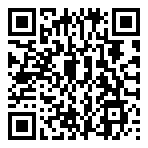
Unstructured Data Management for LLMs
Prepare text, PDFs, and multimedia content for GenAI training and use.
Pillar
Data – Readiness, Governance, Quality & Ethics
Overview
This course covers techniques and best practices for managing unstructured data — including text documents, PDFs, images, audio, and video — to optimize its use in training and deploying large language models (LLMs). Participants will learn how to extract, organize, and preprocess diverse data types to enhance the performance and reliability of Generative AI systems.
Learning Objectives
Participants will be able to:
-
Identify challenges related to unstructured data in AI projects
-
Extract meaningful information from varied content formats
-
Clean, normalize, and annotate unstructured data for LLM training
-
Use tools and workflows for multimedia data processing
-
Ensure data quality and compliance for diverse data sources
Target Audience
-
Data engineers and AI practitioners
-
Machine learning engineers
-
Content managers and data stewards
-
AI project managers
Duration
20 hours over 4 days (5 hours per day)
Delivery Format
-
Lectures on unstructured data types and challenges
-
Hands-on labs with data extraction and preprocessing tools
-
Group exercises on data normalization and annotation
-
Case studies of real-world unstructured data projects
Materials Provided
-
Sample unstructured datasets (text, PDFs, multimedia)
-
Tools and scripts for data processing
-
Best practice guidelines for data management
Outcomes
-
Proficiency in preparing unstructured data for LLMs
-
Ability to design workflows for multimodal data integration
-
Enhanced data quality leading to better GenAI model outputs
-
Awareness of ethical and compliance considerations
Outline / Content
Day 1: Introduction to Unstructured Data
-
Types and sources of unstructured data
-
Challenges and opportunities in AI training
Day 2: Data Extraction and Preprocessing
-
Techniques for extracting text from PDFs and images
-
Audio and video preprocessing basics
Day 3: Data Annotation and Normalization
-
Annotating unstructured data for training
-
Standardizing formats and metadata
Day 4: Integration and Compliance
-
Combining multimodal data for LLMs
-
Ensuring privacy, ethics, and regulatory compliance
